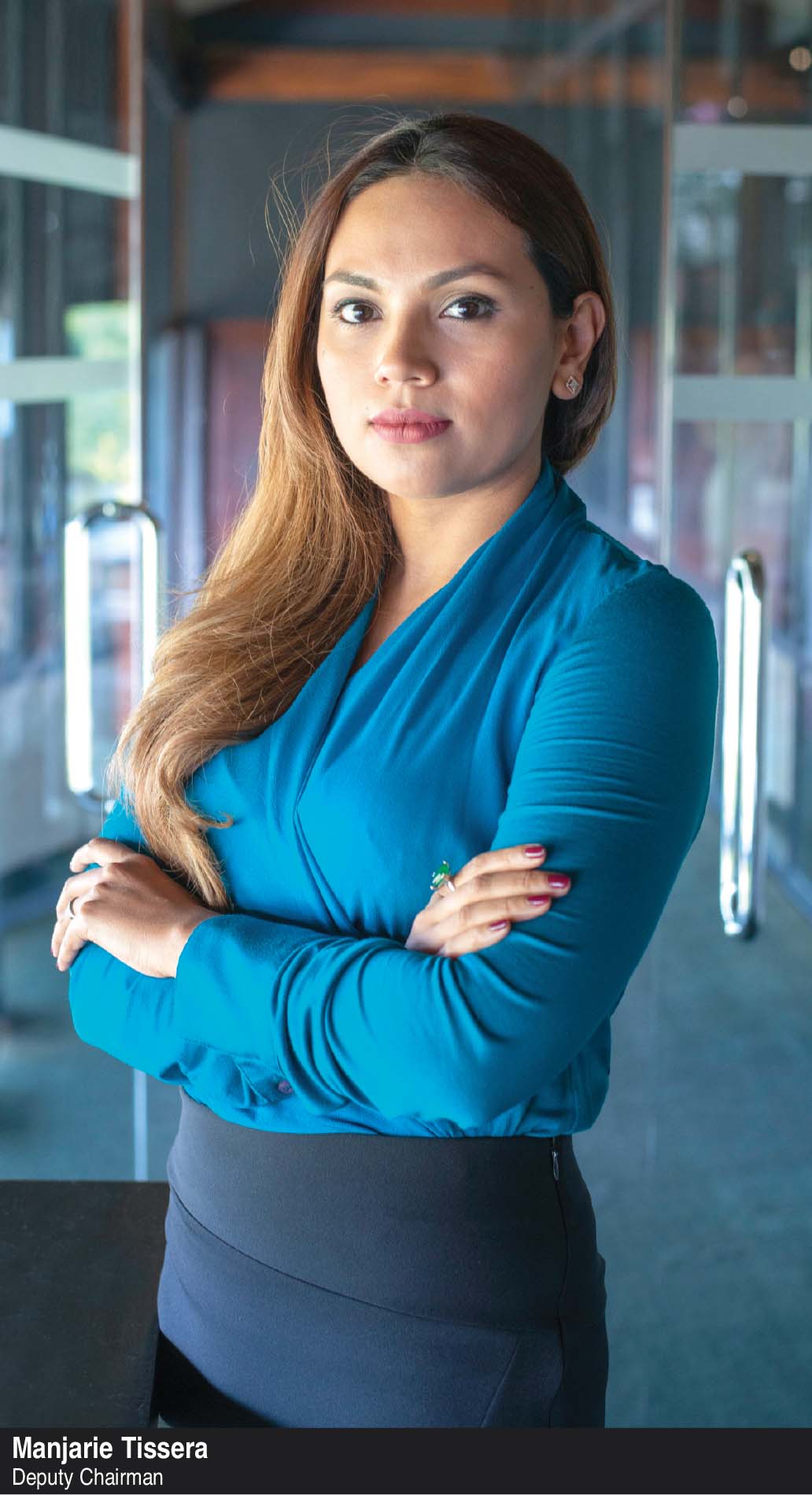CBH LANDS
Q: What challenges are faced by women entrepreneurs in Sri Lanka?
A: Many women entrepreneurs enter business due to widowhood, divorce, inheriting a family business or because their husband’s income is insufficient.
While Sri Lankan families encourage female education, women face several major obstacles when engaging in business. This is evidenced by the strong stereotyping prevalent in traditional society where educated women are expected to prepare for marriage after a certain age regardless of their potential to excel in the corporate world.
Additionally, gender stereotyping is present in the education system with minimal reference to female investors, entrepreneurs or CEOs in school or higher education curriculums.
Other obstacles women face include a reluctance on the part of corporates to hire mothers, citing that the responsibilities of motherhood could become a hindrance to workplace productivity.
Q: And what opportunities can women entrepreneurs seek in the present business environment?
A: There are many opportunities for women if they take the time to learn skills that would enable them to do business more effectively – for example, learning financial tools to improve their businesses, and opting for loans to enhance living standards such as for further education, launching a business or investing.
More women need to be emboldened to speak out about who they are as employees, the value they bring to organisations or the success of products; they must not be afraid to speak about workplace achievements by women and their skills, and create momentum.
With technology, as well as social media such as Facebook, Twitter and Instagram, it has become easier to access new markets, systems and networks.
Moreover, while education is important, women must equip themselves with employable skills such as financial analysis, communication and presentation that will help them navigate the corporate world with confidence. They must not be afraid to ask questions, and sift through corporate and financial jargon to understand business dynamics.
It is important to focus on the opportunities available to women rather than the obstacles, and a change in mindset – beginning in homes – is the key to overcoming this.
Q: What can organisations do to address the loss of women employees at mid-career?
A: Organisations encounter the loss of women employees mainly through marriage or motherhood.
Marriage is an important part of life, and companies should educate spouses and children on the value wives and mothers bring to organisations. Staff trips are an ideal platform through which to honour women for their contribution to the workplace whilst managing a household, and an opportunity to emphasise corporate vision, values and ethics.
When women enter motherhood, their children become the priority. Several companies provide flexi hour systems, daycare facilities and feeding time flexibilities.
However, it would be ideal if organisations can provide more time and understanding to mothers while they attend to the additional family needs and return to the workplace.
Employers should explain their organisational or industry career ladder and direct women to the horizons they can reach. Moreover, guidance on skill development and mentoring are steps that will encourage women to excel in their careers.
Furthermore, for women, jobs that merely pay tend to be unsatisfying, and employers should take steps to incorporate personal growth and the achievement of more meaningful goals through employment.
Q: How do you view women’s representation in the public and private sector?
A: Not only is there a low representation of women in the public and private sectors but there’s also a gender pay gap – the ILO states that Sri Lankan females earn between 30 and 36 percent less than male counterparts in similar jobs.
Moreover, Sri Lanka was ranked 14th among a global list of countries in terms of the largest gender gap in labour force participation for both the private and public sector.
Q: In your view, how should women begin investing?
A: They can do so with what they earn at present. It would be advisable to begin at a place with which one is comfortable and not fall prey to investment jargon.
Accumulating one’s income in a savings account is not investing but rather, utilising that money to purchase tangible assets such as land represents a secure investment in the long term.
For instance, a 15 perch land in Kurunegala by CBH Lands can be bought for approximately 900,000 under present market conditions with a down payment of Rs. 200,000. With housing loans available from leading banks, monthly loan repayments can be settled at instalments as low as Rs. 10,000 a month.
Q: What is your vision for businesswomen in Sri Lanka?
A: My vision is to see Sri Lankan businesswomen in action.
Given the higher female to male ratio in Sri Lanka and with average female life expectancy reported as being six years longer than of males, it’s time for our actions to speak louder than words.
Therefore, a good starting point is for women to break free from the limitations that they place on themselves, learn financials, invest, ask questions and create their own momentum.





